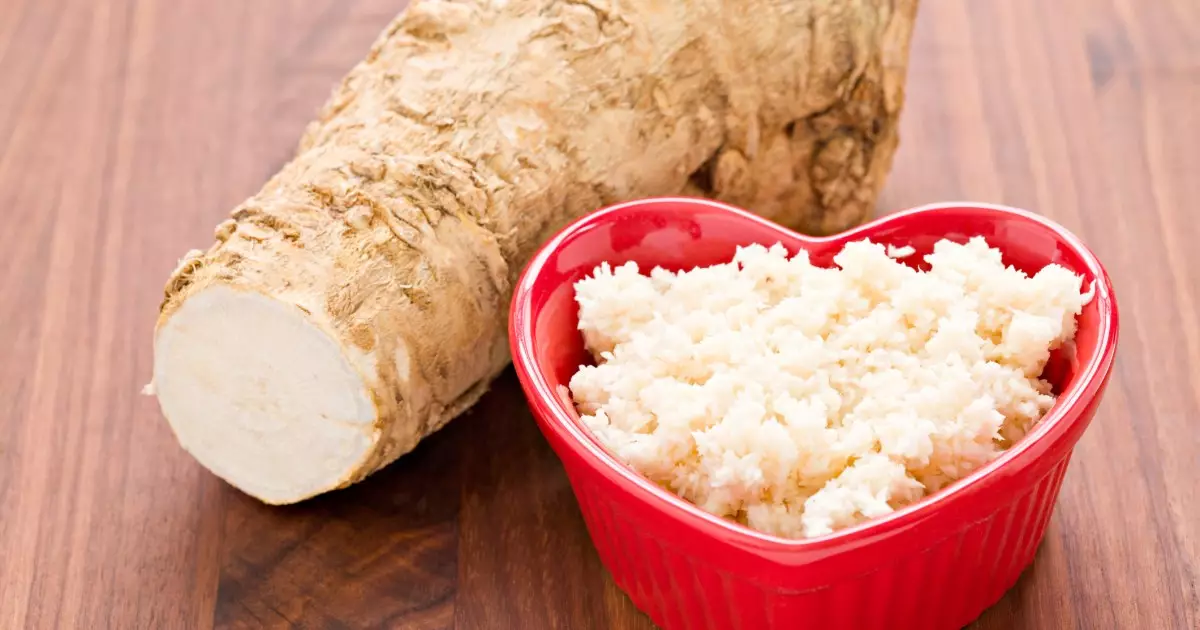When it comes to sharing our meals with our furry companions, not every human food is safe for dogs. The question that often arises is whether horseradish, a pungent and flavorful condiment enjoyed by many, is suitable for our pets. The straightforward answer is no; horseradish is not a safe option for dogs. While it isn’t lethal, the discomfort it can cause makes it a poor choice for your pup’s palate.
Horseradish is not just any root vegetable; it possesses an intense spiciness that can be overwhelming. For humans, the sharpness can provide a burst of flavor that enhances various dishes, yet dogs do not share our taste for such potent flavors. In fact, the consumption of horseradish can lead to significant discomfort for dogs, manifesting in a painful and distressing experience as they struggle with its heat.
The Negative Effects of Horseradish on Your Dog
Imagine the sensation of consuming something extremely spicy—not only does it irritate your mouth, but it can also cause an uncomfortable burning sensation in your throat and stomach. That’s the reality for dogs who accidentally nibble on horseradish. Unlike humans, dogs are not equipped to handle such fiery foods, and doing so can result in a range of gastrointestinal disturbances. Symptoms might include vomiting or diarrhea, both of which can lead to dehydration and further complications.
If your dog ingests horseradish, it’s imperative to monitor their behavior closely. Most likely, your dog will experience some nausea or upset stomach but will not require immediate medical care. However, if you notice any severe reactions—such as difficulty breathing or signs of an allergic reaction—you should consult a veterinarian promptly. This vigilance could make all the difference in ensuring your dog’s health.
Safer Alternatives for Your Canine Companions
As responsible pet owners, it’s our duty to choose food options that exemplify not just safety but also nutritional value for our furry friends. If your dog is curious about root vegetables, consider alternatives like carrots, sweet potatoes, or even jicama. These options are not only safe but can also provide essential nutrients that support your dog’s health without the painful repercussions associated with horseradish.
In addition to being safer, many of these alternatives can promote overall wellness. For instance, carrots are excellent for dental health and are a low-calorie snack. Sweet potatoes are rich in vitamins and fiber. By opting for these healthier snacks, you can indulge your pup’s curiosity without compromising their well-being.
The Importance of Understanding Your Dog’s Dietary Needs
It is crucial to investigate and comprehend what constitutes a healthy diet for dogs. Many pet owners unknowingly introduce harmful foods into their pets’ diets. Educating ourselves about what is safe and nutritious is an important step in responsible pet ownership. Rather than experimenting with potentially harmful foods like horseradish, seek out treats specifically designed for dogs or approved human foods that are healthy for them.
Ultimately, ensuring your dog’s happiness and health ought to be your top priority. By being proactive and informed about the foods that can harm our pets, we foster a more fulfilling and safe companionship.

